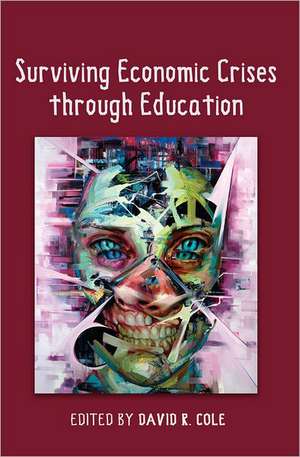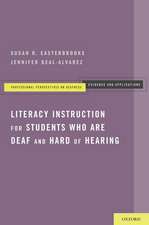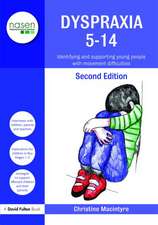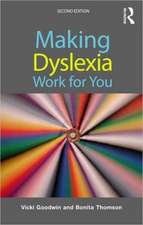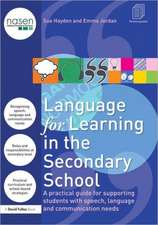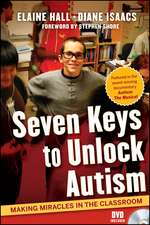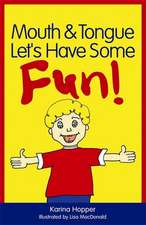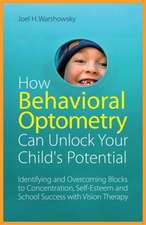Surviving Economic Crises Through Education: Global Studies in Education, cartea 11
Editat de David R. Coleen Limba Engleză Paperback – 31 dec 2011
Din seria Global Studies in Education
-
 Preț: 380.27 lei
Preț: 380.27 lei -
 Preț: 406.00 lei
Preț: 406.00 lei - 23%
 Preț: 518.94 lei
Preț: 518.94 lei -
 Preț: 416.89 lei
Preț: 416.89 lei - 9%
 Preț: 836.29 lei
Preț: 836.29 lei -
 Preț: 374.03 lei
Preț: 374.03 lei -
 Preț: 287.35 lei
Preț: 287.35 lei - 8%
 Preț: 551.72 lei
Preț: 551.72 lei - 23%
 Preț: 614.85 lei
Preț: 614.85 lei -
 Preț: 372.08 lei
Preț: 372.08 lei -
 Preț: 269.64 lei
Preț: 269.64 lei - 9%
 Preț: 797.17 lei
Preț: 797.17 lei - 9%
 Preț: 1129.71 lei
Preț: 1129.71 lei - 9%
 Preț: 795.32 lei
Preț: 795.32 lei -
 Preț: 271.03 lei
Preț: 271.03 lei -
 Preț: 215.48 lei
Preț: 215.48 lei - 27%
 Preț: 948.81 lei
Preț: 948.81 lei - 9%
 Preț: 795.46 lei
Preț: 795.46 lei - 27%
 Preț: 1063.71 lei
Preț: 1063.71 lei - 9%
 Preț: 854.22 lei
Preț: 854.22 lei -
 Preț: 243.54 lei
Preț: 243.54 lei - 9%
 Preț: 775.76 lei
Preț: 775.76 lei - 9%
 Preț: 917.40 lei
Preț: 917.40 lei -
 Preț: 260.30 lei
Preț: 260.30 lei - 9%
 Preț: 890.93 lei
Preț: 890.93 lei -
 Preț: 269.66 lei
Preț: 269.66 lei - 9%
 Preț: 863.01 lei
Preț: 863.01 lei - 9%
 Preț: 729.32 lei
Preț: 729.32 lei - 23%
 Preț: 589.55 lei
Preț: 589.55 lei -
 Preț: 302.94 lei
Preț: 302.94 lei -
 Preț: 292.15 lei
Preț: 292.15 lei - 27%
 Preț: 773.13 lei
Preț: 773.13 lei - 9%
 Preț: 738.34 lei
Preț: 738.34 lei -
 Preț: 290.96 lei
Preț: 290.96 lei
Preț: 256.48 lei
Nou
Puncte Express: 385
Preț estimativ în valută:
49.08€ • 52.48$ • 40.92£
49.08€ • 52.48$ • 40.92£
Carte tipărită la comandă
Livrare economică 14-19 aprilie
Preluare comenzi: 021 569.72.76
Specificații
ISBN-13: 9781433114786
ISBN-10: 143311478X
Pagini: 267
Dimensiuni: 150 x 224 x 15 mm
Greutate: 0.42 kg
Ediția:New.
Editura: Peter Lang Gmbh, Internationaler Verlag Der W
Seria Global Studies in Education
ISBN-10: 143311478X
Pagini: 267
Dimensiuni: 150 x 224 x 15 mm
Greutate: 0.42 kg
Ediția:New.
Editura: Peter Lang Gmbh, Internationaler Verlag Der W
Seria Global Studies in Education
Notă biografică
David R. Cole received his PhD in education from the University of Warwick. He is an Associate Professor in English and pedagogy at the University of Western Sydney. David has edited three books (two with Darren Pullen) and has published a novel. His latest monograph is Educational Life-Forms: Deleuzian Teaching and Learning Practice.
Cuprins
Contents: Stephen J. Ball: Foreword. Crisis and Attentiveness - David R. Cole: Introduction to Surviving Economic Crises through Education - Michael A. Peters: 'Knowledge Economy', Economic Crisis and Cognitive Capitalism: Public Education and the Promise of Open Science - Jim Crowther/Mae Shaw: Education for Resilience and Resistance in the 'Big Society' - Mike Cole: Capitalist Crisis and Fascism: Issues for Educational Practice - Gustavo E. Fischman/Victor H. Diaz: Teach for What America? Beginning Teachers' Reflections about Their Professional Choices and the Economic Crisis - Patrick Carmichael/Kate Litherland: Transversality and Innovation: Prospects for Technology-Enhanced Learning in Times of Crisis - Silvina Gvirtz/Ana Laura Barudi: When the Sun Does not Shine after the Rain: The Effects of the 2001 Crisis on the Education System of Argentina - Ana Inés Heras: Struggle for Agency in Contemporary Argentinean Schools - Silvia Grinberg/Eduardo Langer: Education and Governmentality in Degraded Urban Territories: From the Sedimented to the Experience of the Actual - David R. Cole: Doing Work as a Reflection of the Other: Notes on the Educational Materialism of Deleuze and Guattari - Robert Haworth/Abraham P. DeLeon: The Crisis of Mutative Capitalism: Holey Spaces, Creative Struggle and Educative Innovations - Torill Strand: The Current Dynamics of Professional Expertise: The Movable Ethos, Pathos, and Logos of Four Norwegian Professions - R. Scott Webster: Educating the Person for Democratic Participation - Jason J. Wallin: Remachining Educational Desire: Bankrupting Freire's Banking Model of Education in an Age of Schizo-Capitalism - Marcus Bussey: Afterword. When No Crisis Is the Real Crisis! The Endless Vertigo of Capitalist Education.
Recenzii
At last, we have a book that not only attempts to chart the crucial relationship between education and the crisis of economics, but one that explores critically and insightfully what that crisis may tell us about how to proceed in both opening up new understandings of pedagogy, education, politics, and charting a notion of hope that is as militant as it is realistic. We live at a crucial time, when the ethos of surviving has replaced the possibility of imagining a decent life and the promises of a real democracy. The discourse of surviving for the authors in this book does not suggest a retreat into cynicism or a life stripped of possibility. On the contrary, it suggests a new beginning, a new sense of struggle, and a new sense of hope. 'Surviving Economic Crises through Education' puts education back into politics, and in doing so puts politics back on a footing that makes individual and collective struggle possible again. (Henry Giroux, Global Television Network Chair, English and Cultural Studies, McMaster University) The recent huge hiccup of capitalism ('global financial crisis') and its continuing gurgles of pain have profound implications for education, teacher training, and the role of knowledge for human betterment (given that claims to knowledge and expertise were no protection from the cataclysm itself). This collection shows us why this is so, framing an imperative for rethinking education as a process of self-knowing and empowerment in a period of enormous economic and ontological insecurity. David R. Cole has brought together a significant set of theorists whose empirical evidence flows through to insights and indications of what is to be done. One hopes, as some of the authors propose, it is the very depth of the crisis that may force the shedding of the most deeply entrenched (mis)beliefs about education, enabling thereby a new if wobbly space for innovation and growth. (Andrew Jakubowicz, Professor of Sociology, Director of the Institute of Cultural Diversity, University of Technology, Sydney) In times of economic crisis politicians often present their policies by claiming that 'there is no alternative.' This book unmasks such claims by providing critical readings of the politics of contemporary crisis talk and by presenting a range of generative educational responses that provide real alternatives for educational thought and action. This is a timely and inspiring collection that affirms the crucial role of education in the struggle for democracy in uncertain times. (Gert Biesta, Professor of Education and Director of Research, School of Education & Laboratory for Educational Theory, University of Stirling) This book represents a kaleidoscope of views on the roles of education in a world rapidly changing since the 2008 financial crisis and the collapse of the Western world economies. Ideas mushroom from each chapter challenging the role of education in a capitalist society. A must-read for those from various disciplines who care about education. (Arnaud Chevalier, Senior Lecturer in Economics, Royal Holloway, University of London)
